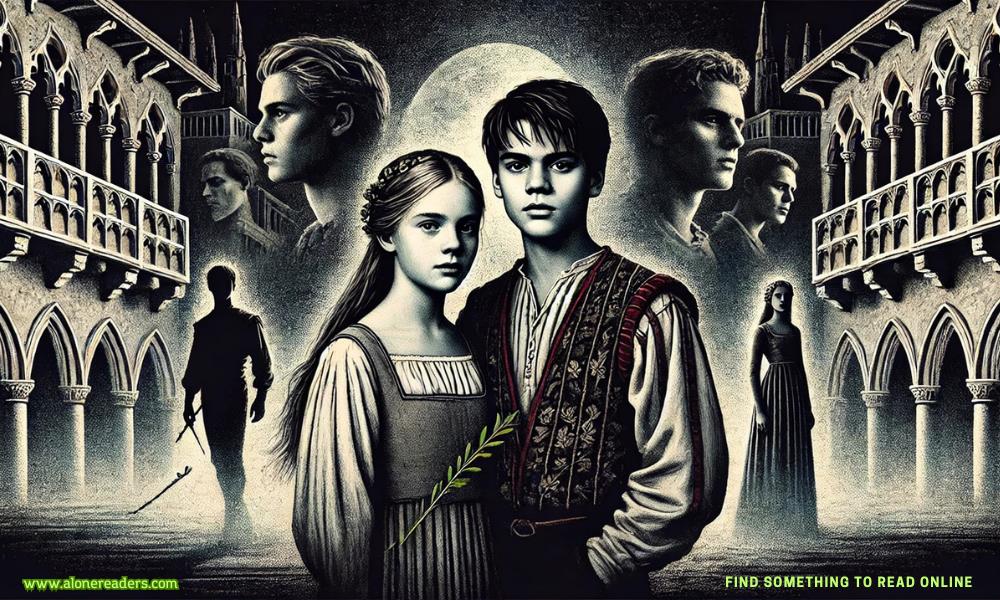
William Shakespeare’s Romeo and Juliet has long been heralded as the ultimate love story, a timeless tale of romance and devotion. However, upon closer examination, it becomes evident that this so-called love story is, in fact, a cautionary tale of impulsive decisions, teenage recklessness, and dire consequences. Romeo and Juliet’s entire relationship spans only three days, with their ages—Juliet at merely 13 and Romeo around 17—raising serious questions about their maturity and the nature of their affections. Their brief encounter does not resemble a deep and meaningful love but rather an infatuation that results in six tragic deaths, including their own. The narrative is not a celebration of true love but a grim exploration of youthful impulsiveness and familial conflict.
The story begins with a long-standing feud between the Montagues and the Capulets, two noble families in Verona. Romeo Montague, initially infatuated with another girl, Rosaline, attends a Capulet ball in hopes of seeing her. Instead, he instantly becomes obsessed with Juliet Capulet, despite having never met her before. Within hours, they are professing undying love and planning marriage. This rapid progression from strangers to supposed soulmates is not a testament to enduring love but rather an illustration of teenage impulsiveness and naivety. Romeo, who was heartbroken over Rosaline just moments before, shifts his affections with unsettling ease, suggesting that his emotions are more about fleeting passion than genuine connection.
Juliet, at just 13, is still a child by modern standards. In Shakespeare’s time, it was more common for young girls to marry early, but even within the context of the play, her inexperience and naivety are evident. She has spent her entire life under the strict guidance of her family, with little understanding of the world beyond her home. Romeo, though older, is hardly more mature. His actions are driven by emotions rather than reason, leading him to make rash decisions with catastrophic consequences. The famous balcony scene, often romanticized, is less about enduring love and more about the impetuousness of two teenagers caught up in a whirlwind of emotion.
Their secret marriage, arranged hastily with the help of Friar Laurence, is the pinnacle of their reckless choices. They marry in secret the very next day after meeting, with no consideration for the consequences. Their decision is based on passion rather than compatibility, and neither of them takes the time to truly understand the other. Romeo's recklessness is further demonstrated when he kills Tybalt, Juliet’s cousin, in a fit of rage following the death of his friend Mercutio. This act of vengeance leads to his banishment, setting the stage for the tragic chain of events that follow.
Juliet, devastated by Romeo’s exile, is forced into an arranged marriage with Paris. Rather than seeking a rational solution, she conspires with Friar Laurence to fake her death, hoping to reunite with Romeo. However, their lack of communication leads to the ultimate tragedy. Romeo, believing Juliet to be truly dead, takes his own life beside her seemingly lifeless body. When Juliet awakens and finds him dead, she follows suit. Their deaths, often perceived as a symbol of undying love, are instead the result of miscommunication and desperation.
Beyond their own fates, their actions directly or indirectly cause four more deaths: Mercutio, Tybalt, Paris, and Lady Montague. Mercutio dies because of Romeo’s interference in his duel with Tybalt. Tybalt is slain in revenge. Paris, engaged to Juliet, is killed by Romeo at her tomb. Lady Montague, stricken with grief over her son’s exile, dies from sorrow. The body count of six is a stark reminder that their relationship was anything but romantic—it was disastrous.
Had they exercised patience or sought more rational solutions, the deaths could have been avoided. Instead, they allowed their emotions to dictate their actions, leading not only to their own demise but to the suffering of those around them. Their story is not one of deep, enduring love, but of adolescent infatuation taken to fatal extremes. The tragedy of Romeo and Juliet lies not in their love being forbidden, but in their lack of foresight and self-control.
Shakespeare’s work remains a masterpiece, but its legacy as the ultimate love story is misleading. It serves as a reminder that impulsive decisions, driven by unchecked emotions, often lead to destructive outcomes. Rather than idolizing their romance, we should see Romeo and Juliet for what it truly is—a tragic lesson in the dangers of reckless passion.